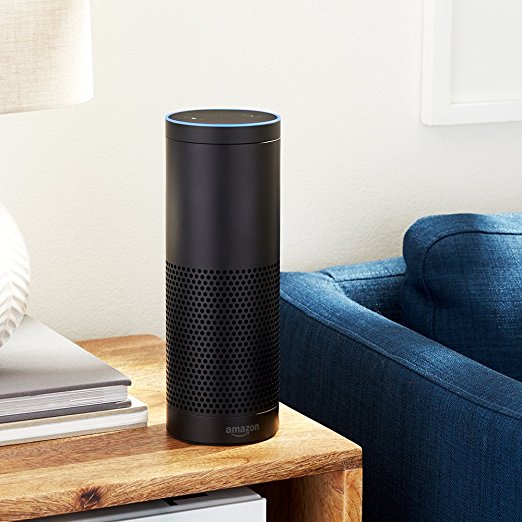
The Wall Street Journal has a note today comparing Amazon’s Echo and Google Home as voice activated, in-home assistants. This space is fraught with impacts on technology and society — from services that can benefit house-bound individuals, to serious opportunities for abuse by hacking, for commercial purposes, or governmental ones. To put it in a simple form: you are being asked to “bug your house” with a device that listens to every noise in the house. Of course you may have already bugged your pocket with a device that is listening for the magic words “hey, Siri” (or the person next to you in the office, train, or restaurant may be carrying that “wire”). Robots that respond to “OK Google” or “Alexa” are expanding into our monitored domains. (What do folks named Alexa or Siri have to look forward to in this world? (Would you name your child “OK Google”?))
The immediate use cases seem to be a cross between control of the “Internet of Things,” and the specific business models of the suppliers; online sales for Amazon Alexa, and more invasive advertising for Google. Not only can these devices turn on and off your lights, they can order new bulbs … ones that blink subliminal advertising messages (uh oh, now I’ve given someone a bad idea).
Looking Forward
From our technology and society perspective we need to look forward to the pros and cons of these devices. What high benefit services might be offered? What risks do we run? Are there policy or other guidelines that should be established? Please add your thoughts to the list.
Meanwhile I’m trying to find out why my new car’s navigation system keeps trying to take me to Scotland when I ask “Find McDonald’s.”






 JOIN SSIT
JOIN SSIT